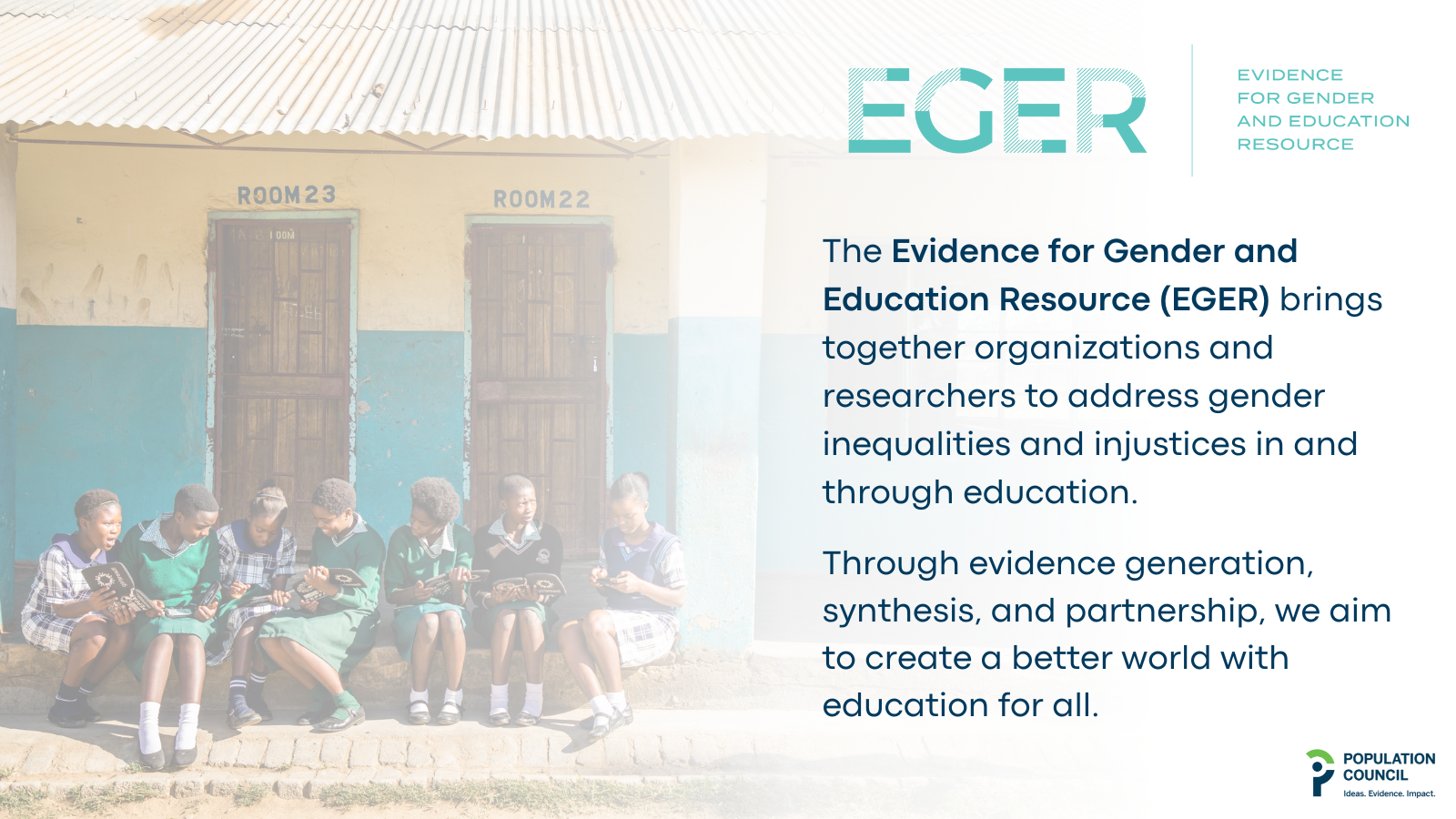The Evidence for Gender and Education Resource (EGER) seeks to address gender inequalities and injustices in global education.
By providing easily accessible data and evidence, we support the gender and education community as a knowledge partner and inform programs and policies that shape the global agenda. Launched in 2020 with evidence and partnership at the center of our mission, EGER seeks to create a world with better education for all.
EGER hosts more than 700 profiles of organizations that implement programs, conduct research, advocate, network, and fund efforts in the gender and education space in more than 100 countries. It contains details on more than 1,050—and counting—current projects.
Curated evidence from recent meta-analyses and systematic reviews helps identify what interventions work for which outcomes, and highlights where research gaps remain. EGER also shows country-level indicators for key gender and education outcomes, including literacy, completion rates, school-related gender-based violence, and more.
The EGER team is expanding their mapping to include country-level organizations and their programs, government initiatives, and country-level policies. To share or update your work on EGER, please visit your account page or create an account.
The EGER team will also continue mapping current global gender and education efforts alongside updates of current needs data and evidence of what works. Check out the latest synthesis—the Girls Education Roadmap—and stay tuned for more data visualizations and syntheses.
Join the EGER mailing list to be notified of updates.
EGER was developed by the Population Council’s GIRL Center with Echidna Giving as a founding partner. Core support is also provided by the Foreign, Commonwealth & Development Office and the Bill & Melinda Gates Foundation.
